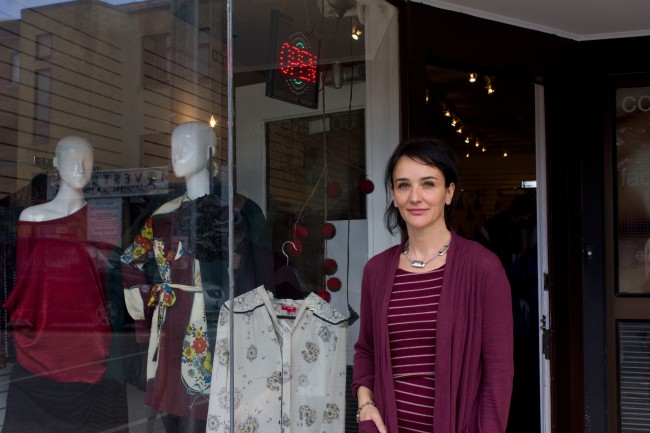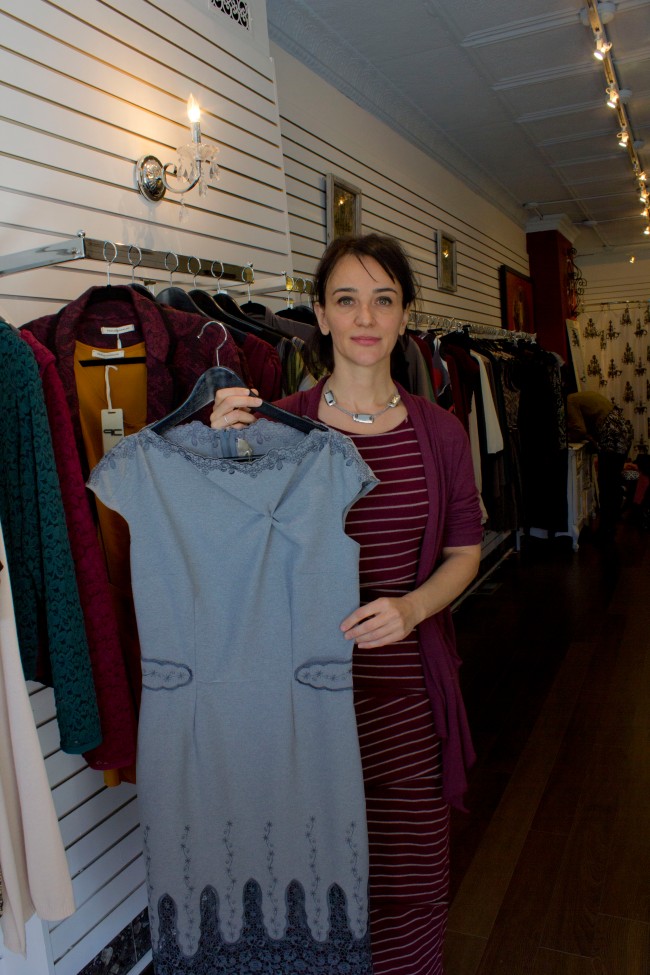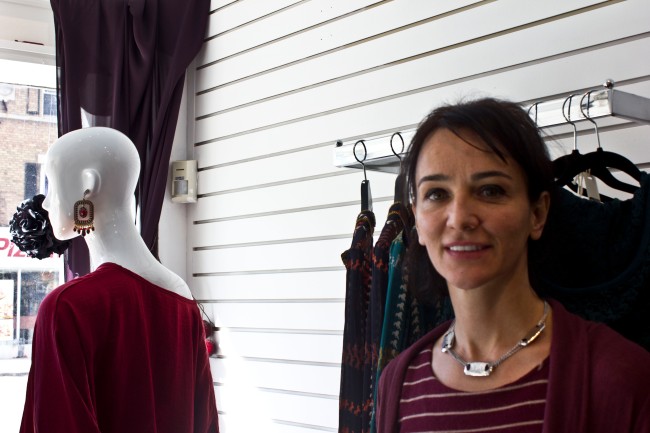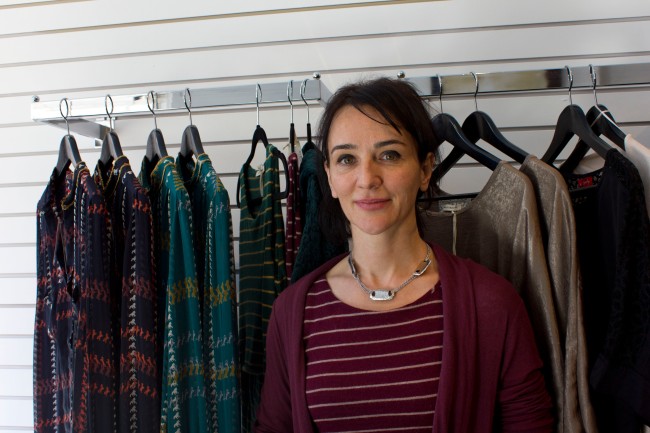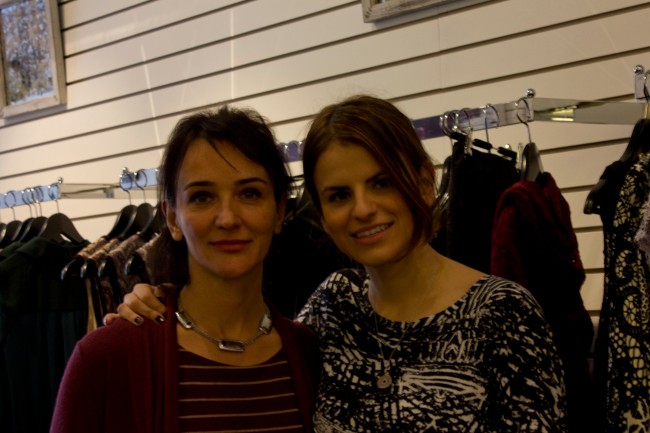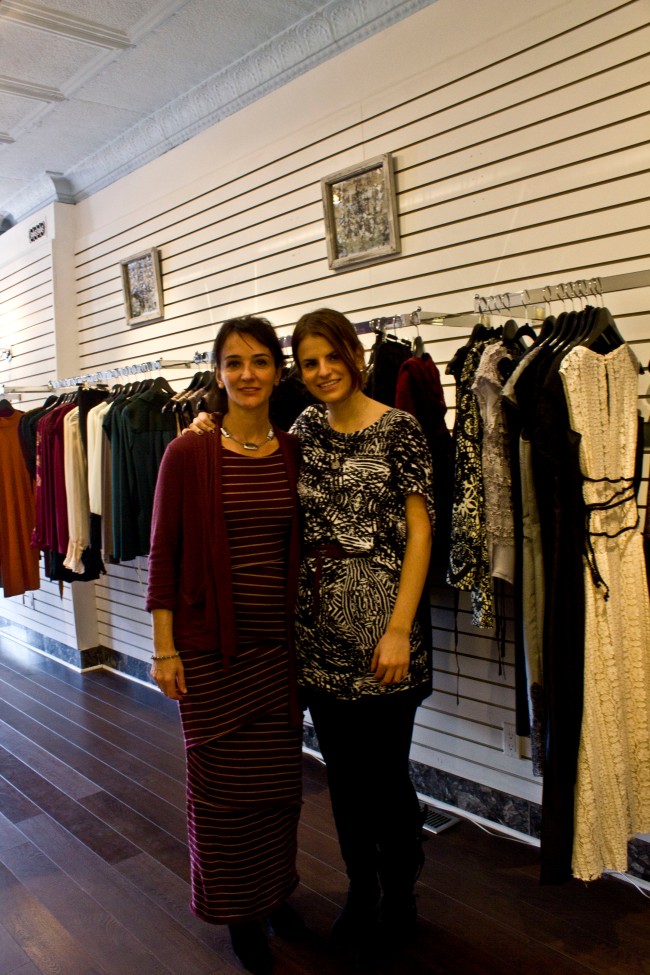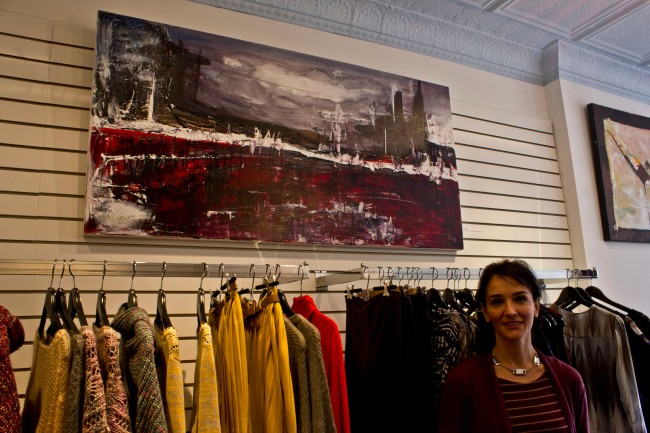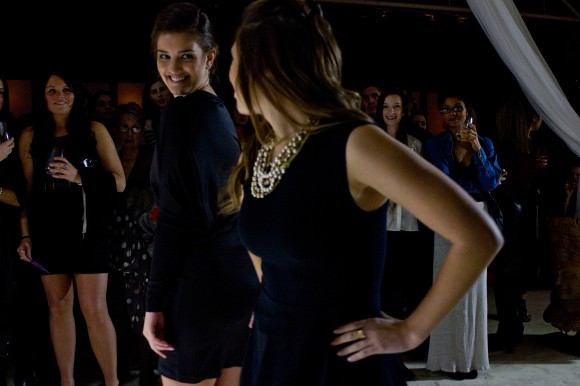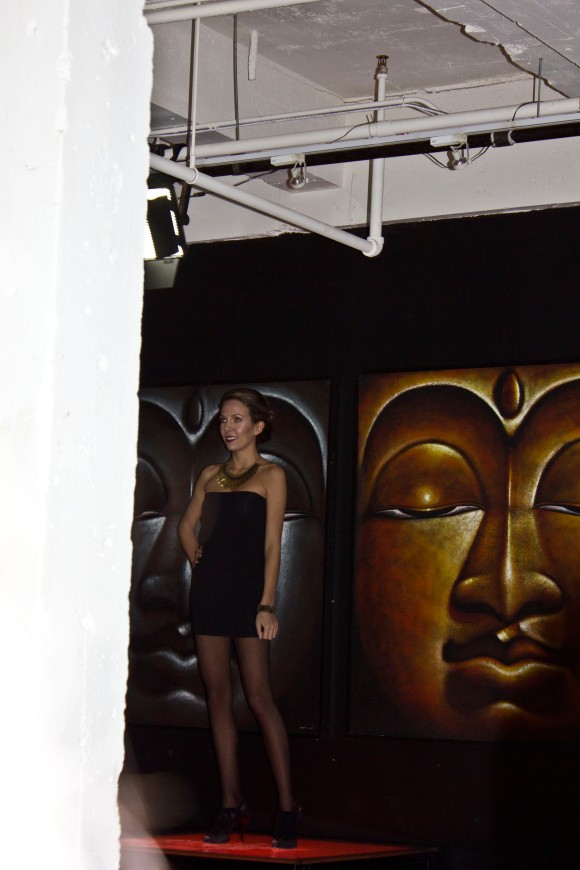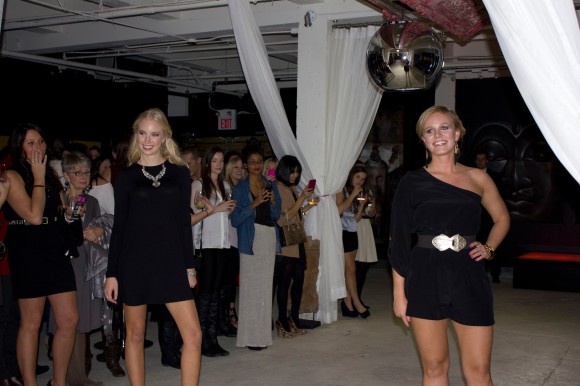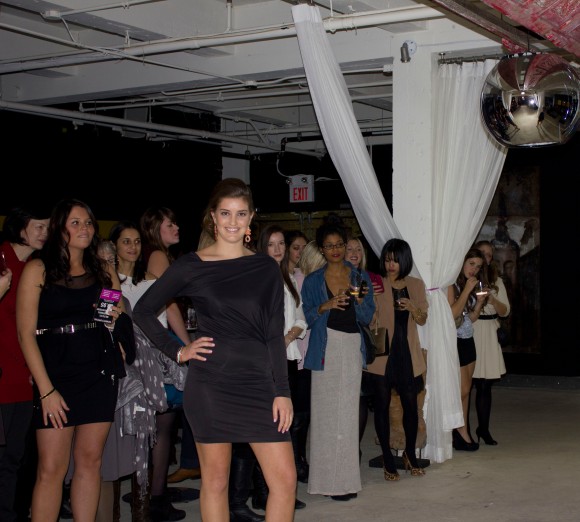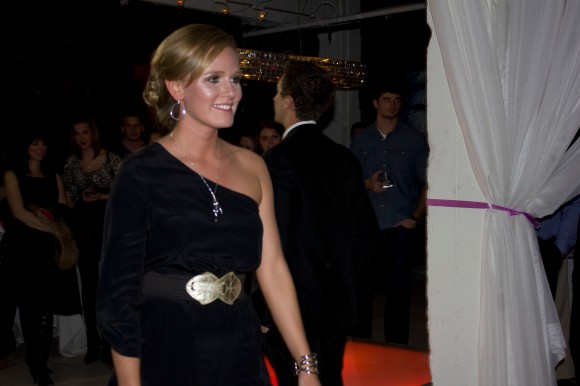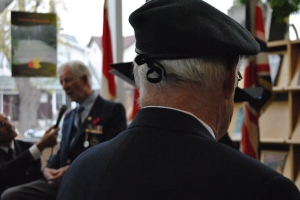By Erika Marucci
It all started with a young woman’s dream and the love for all kinds of art -from painting figures and taking photographs, to designing dresses- that’s how a boutique in Yonge Lawrence Village was opened.
Bisa Bennett is the name of that woman. Not only did she open her own shop, she also designs and sells her own creations in it, as well as carrying other French and Italian designer’s lines.
The store is called Notion Style. The boutique opened officially to the public on August 20, 2012 and her daughter, Tijana Bennett, who co-manages the store and stays “more on the business side,” while helping with the designing process, was very pleased with the success that the opening event brought.
“It was great! A lot of people showed up,” she said. “We had promotions, and even our family friends came in, so it was really nice. There was a lot of good feedback.”
Tijana doesn’t design dresses, but she helps her mother in choosing the style that she thinks will engage the younger crowd.
“I’ve never explored my artistic side. But I do have the eye I think,” Tijana Bennett said. “I help a lot with the line. I used to act so that was my more artistic thing. I think I have something, but I’ve just been in school studying.”
The opening was a big success, but to realize the project, a lot of effort and energy was consumed.
“It took a year of preparation, because when you want to have a brand, of course you have to have ideas and you have to know how you are going to do it,” Bisa Bennet said. “But the production, especially now is a little hard. We don’t have many factories here. We produce in Canada and the dresses are made here and in Italy because we really care to have top quality.”
The Bennetts are aiming at expanding their collection overseas, and at the moment Bisa is working in partnership with the Italian designer Ernesto Graditi.
“We started this year and we hope to expand,” the designer said. “We are also trying to get the stores in Italy. We hope to start selling there by February or March. I’m in partnership with the Italian designer, Ernesto Graditi, and we have a brand there.”
Bisa Bennett and her daughter are the only ones working and managing the boutique, so when Bisa is out of town choosing fabrics for her creations and dresses made by other designers, Tijana stays in the store and welcomes the clients.
“We remember all the clients that come here,” the designer said. “So when I go and buy a design I have them in my mind. I have their life stories and I know what to bring them.”
Although Bisa Bennett is happy for how the business is going, she doesn’t want to stay blocked in her own store, that’s why she frequently leaves the country in search of new ideas for her art.
“This kind of job is ok, but with only the store is a bit difficult,” she said. “I need to have the opportunity to grow, to travel, to meet other designers, because I’m not carrying just my brand, I’m carrying other ones too. I have to go and choose which ones I like, which ones my clients are going to like, which is better quality.”
Bisa designs for all women of all ages, she wants her clients to be happy with themselves and show the world how strong they are. Through her line she wants to empower women and bring their inside strength and beauty on the outside for everyone to see.
“I don’t think that if you’re a size 40 you’re better, or a size two you’re better,” she said. “When clients put on a dress I want them to feel confident. Even if they are working or
stay-at-home moms they can be always dressed well and carry themselves well. I want to show that they are strong.”
The designer is very confident when it comes to fashion, she makes the achieving of a client’s happiness her goal, and no matter what size a woman is, she puts passion in what she does and gives them all her attention.
“I don’t like seeing a woman that isn’t interested in how she looks like,” She said. “When a customer comes, it doesn’t matter if they are overweight; I can dress them so that they feel good about themselves. As a designer it’s my duty to dress everyone not only the sizes two. I make dresses for the famous people, but also for the stay-at- home moms.”
The owner of Notion Style is not only a designer; she is also a photographer and painter. Her paintings have been exhibited in cities like Toronto, Florence, New York and Belgrade. Her art focuses particularly on the feminine figure and the aura of sensuality that surrounds it. Her photography also concentrates on women.
“I was for a long time interested in women and their lives,” she said. “My paintings were more about showing a woman’s sensuality, while my photography was inspired by lives in different countries. I have a series of photographs taken in Cuba and I was inspired by the women’s lives and what they went through. Maybe they were poor, but they were extremely happy.”
When it comes to art, Bisa Bennett has a very solid opinion.
“I’m against people who say they like or dislike a piece of art,” she said. “Every artist paints what they feel inside of them, how can you judge what they feel? I can say that I don’t feel anything, but that doesn’t mean that the artist isn’t good. Today it’s a bit different, people don’t buy art because they love it, they buy it because it fits well with the furniture.”
Being a photographer and a designer at the same time has helped Bisa Bennett a lot with her work. She and Tijana went to Italy to shoot photos for her line. Bisa was the photographer, while Tijana modeled the best dresses of her mother’s line.
“I was the photographer when we went to shoot in Italy,” Bisa Bennett said. “Because I think, the connection between her (Tijana) and myself is very important. She knows my ideas so I can work with her very closely. She knows what I’m looking for. It’s very important for the model to connect with the photographer and the designer as well. When we were there, Ernesto helped me a lot too. He understands me as well. That’s how we work together; there is easy communication.
For now Bisa Bennett has only her holiday line out; she’s waiting for all of her creations to sell out and then she will begin a whole new collection. Spring is only a few months away and we can’t wait to see what new pieces she will come up with!
